Why Does My Dog Grab the Leash When Walking?
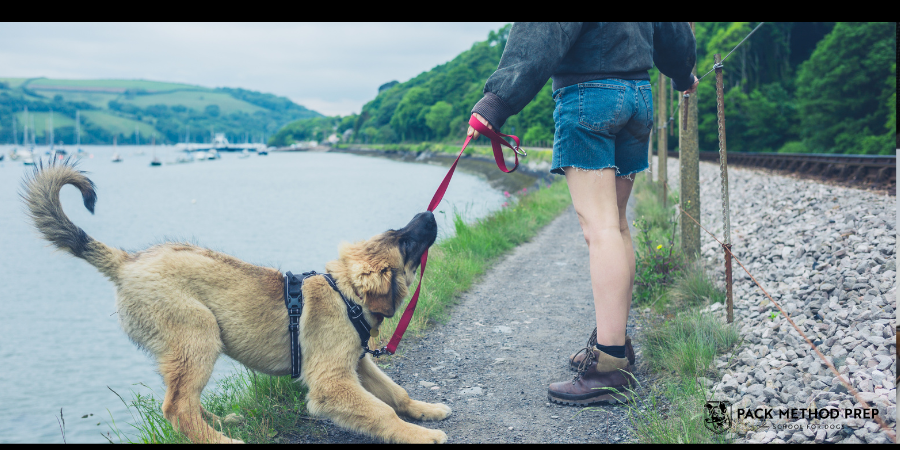
Hi everyone, Zoe Stathis here from Pack Method Dog Prep! Walking your furry friend is a joy, a chance to explore the world together and strengthen your bond. But sometimes, our canine companions surprise us with puzzling behaviors, like grabbing the leash during walks. Don’t worry, this is a common issue, and by understanding the “why” behind it, we can turn frustrating walks into fun, fulfilling experiences.
Decoding the Leash Grab: Exploring the Reasons
There are several reasons why your dog might be grabbing the leash. Let’s delve into the most common ones:
Exuberant Excitement: For many dogs, walks are an exciting adventure, a chance to sniff out new scents, meet fellow canines, and chase playful squirrels (or at least try to!). This excitement can manifest in a playful tug-of-war with the leash. Here, your pup might be viewing the leash as an extension of playtime, a way to interact with you.
Attention Seeking: Dogs are masters at reading our body language and emotions. If your dog grabs the leash and it gets a reaction – a scolding voice, a frustrated sigh, or even a playful tug back – they might learn that this behavior gets your attention. Remember, even negative attention can be rewarding for some dogs.
Teething Troubles: For puppies, the teething phase is a time of discomfort. Their gums are sore, and they have a natural urge to chew on anything they can find. Unfortunately, the readily available leash often becomes a prime target for their teething needs.
Frustration and Anxiety: Not all leash grabbing stems from happy emotions. Sometimes, it can be a sign of frustration or anxiety. This could be because your dog feels restricted by the leash, overwhelmed by the sights and sounds on the walk, or even scared of something they encounter.
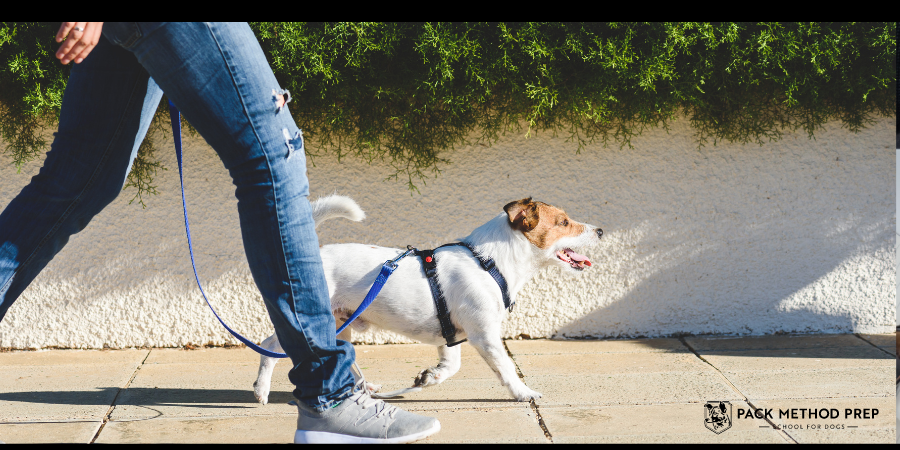
Turning the Tables: Strategies for a Relaxed Walk
Now that we’ve explored the reasons behind leash grabbing, let’s look at some practical solutions:
The Power of Positive Reinforcement: Dogs are highly responsive to positive reinforcement. When your dog walks calmly beside you, without grabbing the leash, reward them with a delicious treat, a verbal “good job,” or a quick game of fetch with their favorite toy. This positive association encourages them to repeat the desired behavior.
Redirection is Your Friend: Sometimes, distraction is the key. Carry a chew toy or a ball on your walks. When your dog starts to grab the leash, offer them the toy instead. This redirects their attention and provides them with an appropriate outlet for their chewing or playfulness.
Teaching with Commands: Clear communication is essential for a smooth walk. Train your dog to understand basic commands like “leave it,” “drop it,” or “heel.” With consistent training and practice, these commands can effectively discourage leash grabbing when used during walks.
Leash Selection Matters: The type of leash you use can also play a role. A thicker, sturdier leash or a chain leash might be less appealing for chewing or grabbing compared to a thin nylon one. Experiment and see what works best for your dog.
Addressing the Root of the Problem: Beyond the Leash
Leash grabbing might be a symptom of a deeper issue. Here’s how to address those underlying causes:
Ensuring Enough Exercise: A tired dog is a well-behaved dog (most of the time!). Make sure your dog gets enough exercise throughout the day. This will help burn off excess energy and minimize excitement-driven leash grabbing during walks.
Calming Anxiety and Frustration: If anxiety or frustration appears to be the culprit, we need to address those anxieties. Identify any triggers during walks that might be making your dog nervous, like loud noises or busy streets. Work on desensitizing your dog to these triggers gradually. It’s also important to make walking a positive experience for your dog. Keep walks calm and predictable, and ensure your dog feels safe and secure by your side.
Seeking Professional Help: Sometimes, leash grabbing can be a stubborn habit. If you’ve tried these strategies and the behavior persists, don’t hesitate to seek help from a professional dog trainer or a behaviorist. They can provide personalized advice and training techniques tailored to your dog’s specific needs.
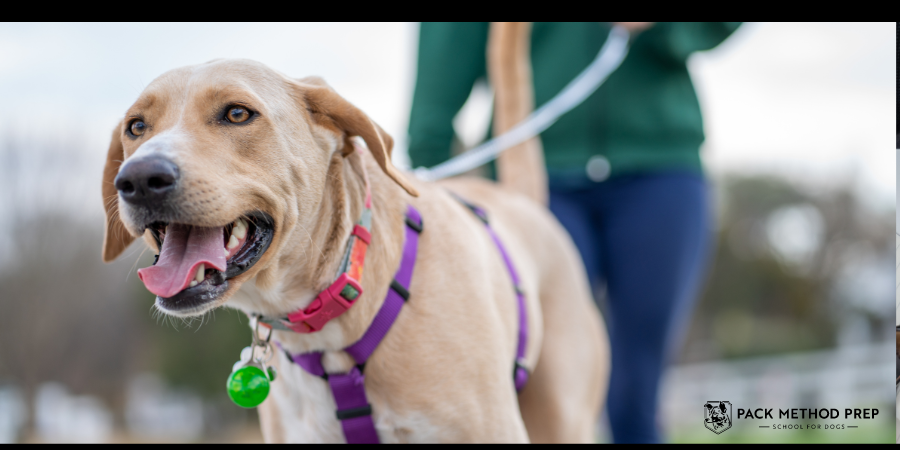
The Takeaway: Enjoying Walks Together
Understanding why your dog grabs the leash is the first step to a solution. By identifying the reason and implementing these training techniques, you can transform frustrating walks into enjoyable bonding experiences. Remember, patience and consistency are key. With a little effort, you and your furry friend can walk in harmony, side-by-side, creating lasting memories and strengthening your bond. Don’t let leash grabbing hold you back from enjoying the simple pleasures of exploring the world together.
Tailoring Your Approach: Recognizing Breed Tendencies
While the reasons mentioned above apply to most dogs, it’s important to consider breed tendencies as well. Certain breeds were bred for specific tasks, and their natural instincts might influence their leash behavior:
- Herding Breeds: Border Collies, Australian Shepherds, and Kelpies are known for their herding instincts. They might try to “herd” you by grabbing the leash and steering you in a particular direction. Providing them with mental stimulation through herding games or puzzle toys can help channel this instinct constructively.
- Hound Dogs: Beagles, Basset Hounds, and Bloodhounds are all about following scents. They might grab the leash to pull you towards an interesting smell they’ve caught. Teaching a strong “leave it” command and keeping them on a short leash in areas with high distractions can be helpful.
- Sporting Dogs: Labradors, Golden Retrievers, and Spaniels are energetic and playful. Their leash grabbing might be a playful invitation to a game of tug-of-war. Providing them with ample playtime before walks and using a redirecting strategy with a favorite toy can help curb this behavior.
- Giant Breeds: Great Danes, Saint Bernards, and Mastiffs might accidentally grab the leash due to their size and strength. Using a properly fitted harness and teaching them basic commands like “heel” can help you maintain control during walks.
Making Walks Fun and Engaging
Walks should be a positive experience for both you and your dog. Here are some ways to make them more engaging:
- Variety is the Spice of Life: Don’t stick to the same route every day. Explore new trails, parks, and neighborhoods to keep your dog stimulated.
- Scent Games: Hide treats or kibble in different spots during your walk and let your dog sniff them out. This mental stimulation is tiring in a good way and strengthens your dog’s nose-work skills.
- Positive Reinforcement: Carry a clicker or a pouch of treats during walks. Reward your dog for good behavior like loose leash walking, checking in with you, or following commands. Positive reinforcement makes training enjoyable and strengthens the bond between you and your dog.
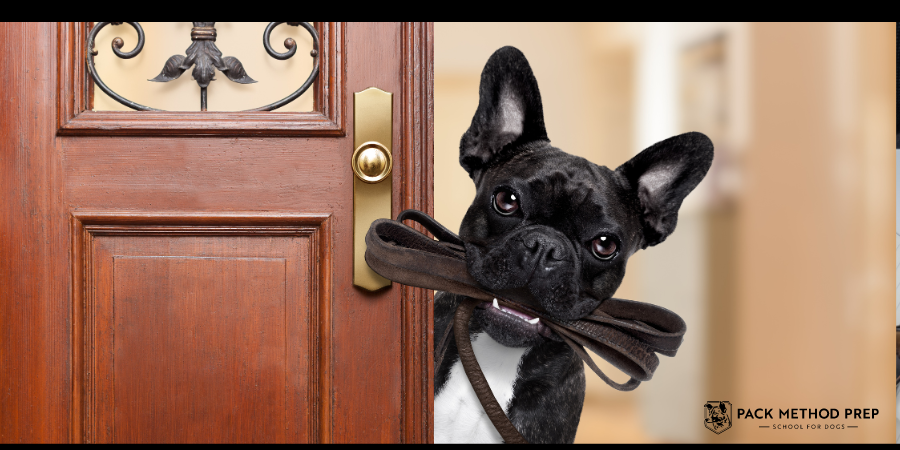
Remember, Patience is Key
Changing ingrained behavior takes time and consistency. Don’t get discouraged if you don’t see results immediately. Stick to your training plan, reward the desired behavior, and celebrate even small improvements. With patience and positive reinforcement, you’ll be well on your way to enjoying leash-free walks (metaphorically speaking!) with your canine companion.
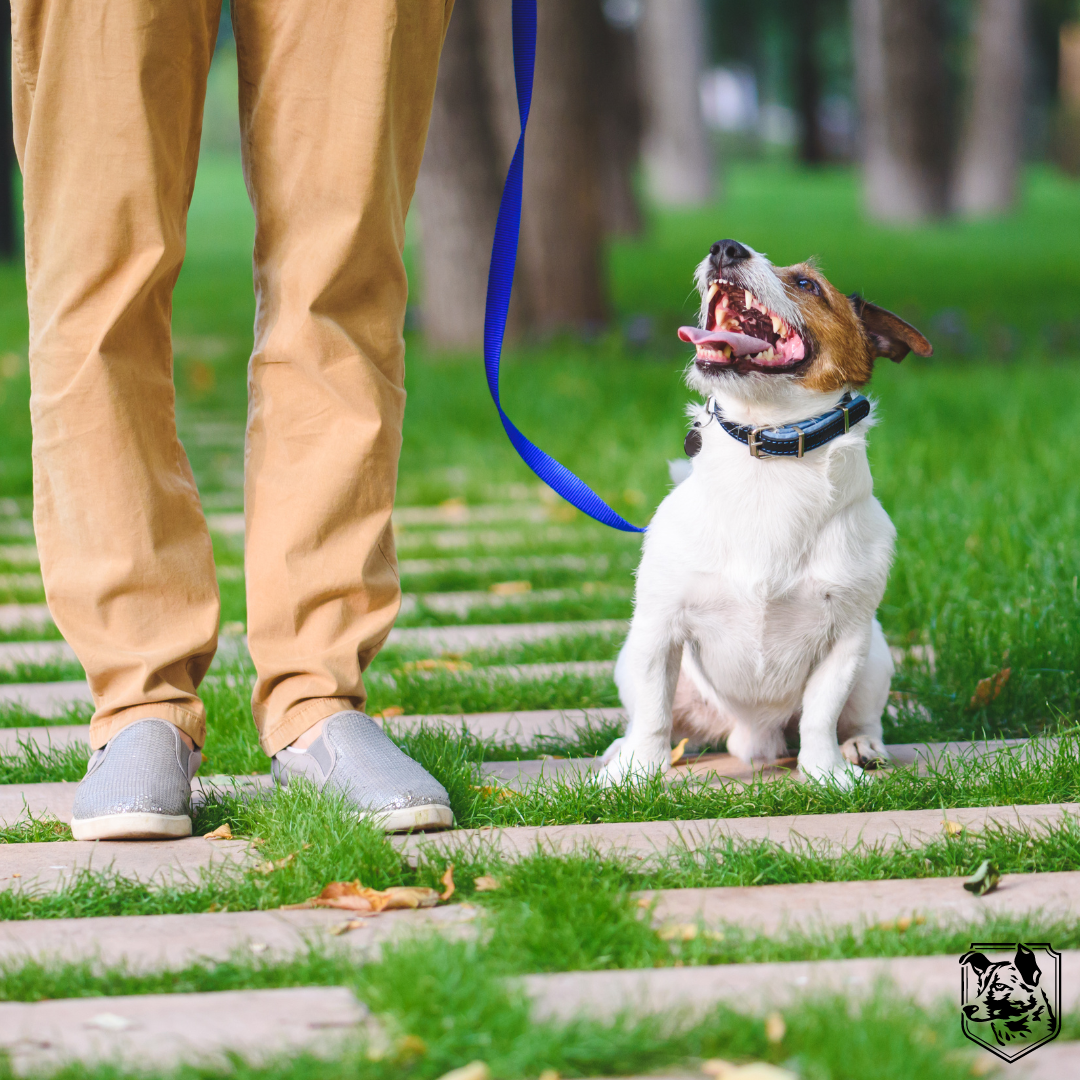
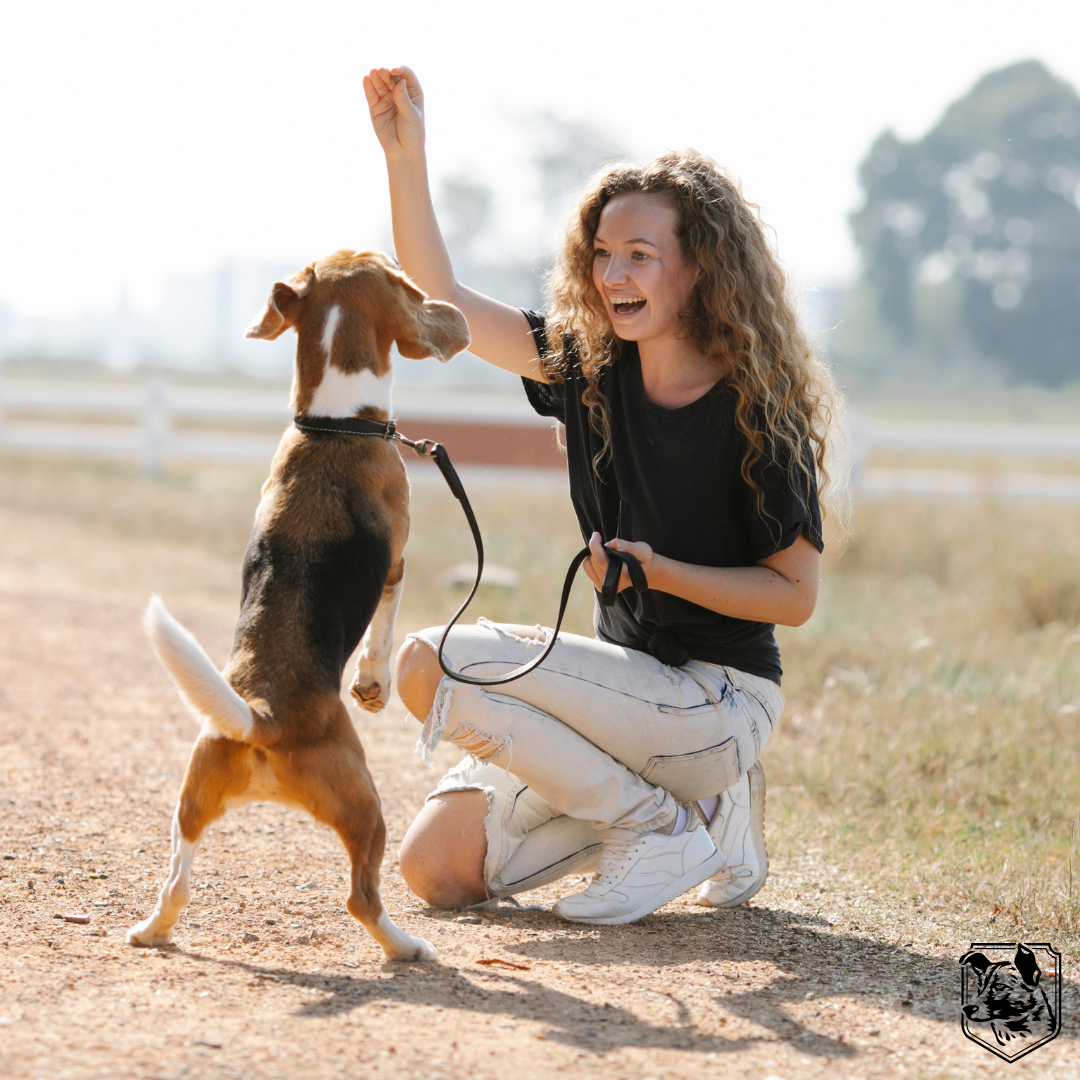
Become the Best Pet Parent You Can Be!
Looking for San Diego dog trainers to help you and your furry friend have the strongest bond possible? Pack Method Prep is here for you! We offer a variety of training options to fit your needs, whether you want to help your dog become a social butterfly or overcome specific behavioral challenges.
- Private Training: Work one-on-one with our expert trainers to achieve amazing results.
- Group Classes: Join our fun community classes and let your dog learn and socialize with other pups.
- Virtual Consultations: Get expert advice from anywhere with our convenient online dog training options.
Ready to transform your dog park trips into positive experiences? Enroll in our training programs and become the informed, compassionate pet parent your dog deserves. Let’s create joyful park memories and a lifetime of love with our canine companions!
Contact us today to schedule a consultation and start your journey towards stress-free walks!
Call us at (858) 230-7020 or contact us here to learn more and apply today!
Warmest Wags,
Zoe Stathis